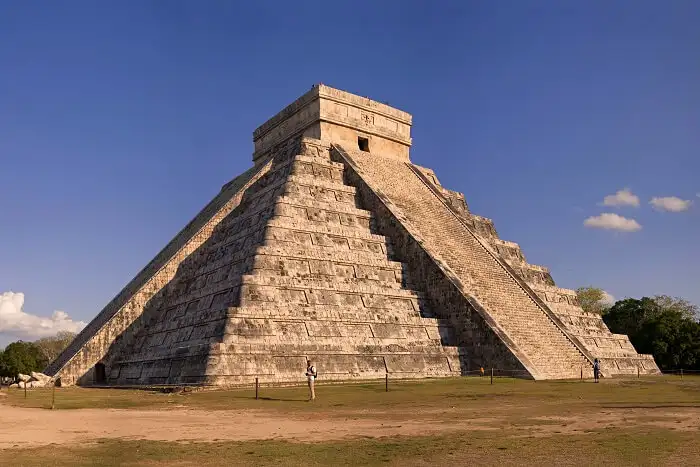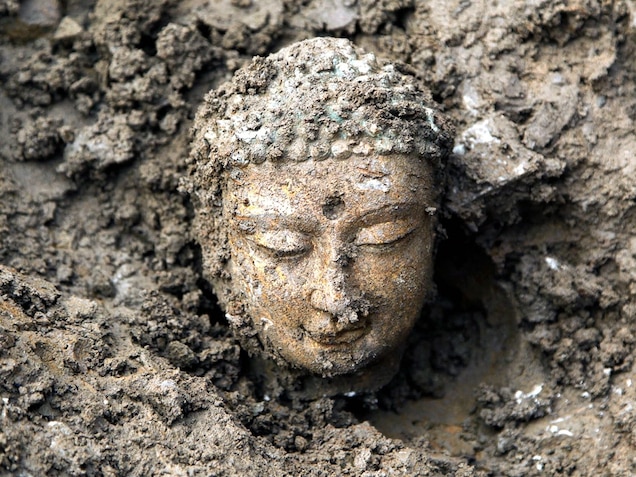Here's What You Can Learn From Studying Ancient History!
There are three main lessons that I gathered from ancient history and which I am excited to share: First that ancient history is old, secondly that ancient history connects us all, and thirdly that ancient history teaches us that nothing is inevitable but also that there are reasons for everything.
One thing that is important to remember about ancient history is that it covers thousands of years. For example, the Indus River Valley Civilization lasted from 3300 BCE to 1300 BCE. That is an impressive run! Meanwhile, Maya culture and civilization dominated Mesoamerica for over 3,000 years. With all this in mind, looking into ancient history is very intuitive to me. If you think history is worth learning about at all, then it follows that you should learn about the time-honored civilizations that took up such a big part of it timewise. In other words, the earliest complex societies appeared 6,000 years ago; the more you learn about civilization that lasted two thousand years, the more you are learning about a big chunk of it.
One thing that I think is cool about ancient history is that we're the product of that history; not only in a figurative way, but in a very literal way. As early as 2 C.E. during the Han dynasty, China had a population of some 60 million : approximately one-fourth of the world's population at that time. The Roman Empire at that same period had similar numbers - about one fourth of the population of Earth. If someone has any European DNA like me, they have countless ancestors that lived in the Roman Empire. In the Americas, millions of people people descend from indigenous peoples, such as the Maya people who inhabit southern Mexico, Guatemala, Belize, El Salvador and Honduras. This is not to say that it is imperative that one must imagine themselves to be descended from a powerful empire in order to feel excited about ancient history, because ancient history encompasses the study of all people who lived in ancient times. The reality that we are descended from the very same people we study becomes even more significant if you think about what scientists say about ancestry and mathematical models. This becomes even more likely if you think about what scientists say about ancestry and mathematical models. Based on careful mathematical modeling of historical patterns of human migration, it appears that the last common ancestor to all of todays humanity lived between 2,000 and 5,000 years ago. Therefore, even if you and I appear to have roots in completely different parts of the world, we can be sure that we have common ancestors sometime in the past 5000 years. It definitely makes me feel intimately connected to the past in a sentimental way to think that generations of familial ties, and probably lots of familial teaching and love, connect us with the historical past. It also makes me feel very connected with the world that we human beings are all so connected to one another through our histories; these feelings incite me with wanderlust when I learn about ancient history.
Another important thing that ancient history teaches me is that nothing is inevitable, but also that there are reasons for everything. This sounds like a contradiction but it is not. When people discuss how history shaped the systems of thought, culture, or technology of the modern world, they often completely leave out ancient history; the approach that is often taken assumes that the relevant history began at some arbitrary point which excludes ancient history, and neglects to look further back in time for further insight. This is because when people use history to contextualize the modern world, they point to immediate causes rather than ultimate causes which consider a larger context. The problem with relying on immediate causes to explain history is that it is impossible to get the full picture. For instance, consider why Europeans colonized the people living in Africa & the Americas in a Colonial Period, and not the other way round. A generic textbook explanation would list the immediate causes that enabled Europeans to kill or conquer other peoples, such as European guns, infectious diseases, steel tools, and manufactured products. However, this explanation of immediate causes invites a search for deeper causes, such as why Europeans were the "earliest" to end up with these weapons, diseases, tools and a desire to conquer and colonize other countries in the first place. Therefore this lack of further contextualization could lead to racist explanations such as the religious or Darwinist arguments that had been used by European colonists to justify their actions. The study of ancient history proves these arguments wrong, and shows that history followed different courses for different peoples because of differences among peoples environments, not because of biological differences among people themselves. This premise also touches on the important fact that history gives context and meaning to our lives, including current events in the world today. Therefore it is very valuable to scrutinize history carefully and to ask questions rather than to simply go along with assumptions.
I have spoken a bit about the things that history has taught me and why I think it is worth learning about. In summary, I believe that the practice of history done correctly is empathetic in nature because it is a process of understanding someone who is not you. It has taught me to have a broader historical perspective and has taught me other ways of thinking, which I believe is truly useful and easy to lose sight of in modern times. I would recommend to others to learn about ancient history the same way I did: begin by learning some facts about something specific that interests you, and watch it turn into a more general interest as you start to fit the pieces of the puzzle together. Though you might never get a finished picture, you will at least end up understanding the pieces.
Sources:
Scientific American: Humans Are All More Closely Related Than We Commonly Think

 .
.